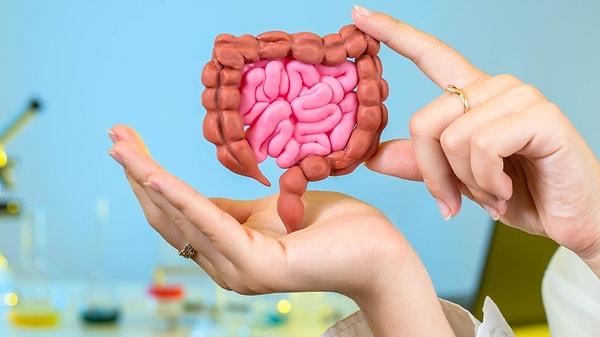How to Help Your Gut Health: A Comprehensive Guide to a Happier Gut
Your gut is not just a place where food is digested; it's a complex ecosystem of trillions of microorganisms working harmoniously to influence your overall health and well-being. A healthy gut is not only essential for efficient digestion but also plays a pivotal role in your immune system, mood regulation, and even weight management. Neglecting your gut health can lead to various health issues, from digestive problems to chronic inflammation. In this comprehensive guide, we'll explore the many facets of gut health, including the factors that affect it and actionable steps you can take to improve and maintain a happier gut.
Understanding Gut Health:

Before diving into ways to improve your gut health, it's crucial to understand what exactly we mean by a 'healthy gut.' Your gut, or gastrointestinal (GI) tract, is home to trillions of microorganisms, collectively known as the gut microbiome. These microorganisms include bacteria, viruses, fungi, and other microbes, and they play a crucial role in your health.
A healthy gut microbiome is characterized by a diverse and balanced community of these microorganisms. When this balance is disrupted, it can lead to a condition called dysbiosis, which has been linked to various health issues, including irritable bowel syndrome (IBS), inflammatory bowel disease (IBD), allergies, and even mental health disorders like depression and anxiety.
Factors That Affect Gut Health:

Several factors influence the composition and health of your gut microbiome. Here are some of the key factors to consider:
Diet: Your diet has a profound impact on your gut health. A diet rich in fiber, fruits, vegetables, and fermented foods promotes a diverse and healthy microbiome. On the other hand, a diet high in processed foods, sugar, and saturated fats can disrupt the balance of your gut bacteria.
Antibiotics and Medications: Antibiotics can be life-saving, but they can also disrupt the balance of gut bacteria. Other medications, such as proton pump inhibitors and non-steroidal anti-inflammatory drugs (NSAIDs), can also affect gut health.
Stress: Chronic stress can alter the composition of your gut microbiome and lead to gut issues. The gut-brain connection is a two-way street, with stress affecting the gut and vice versa.
Sleep: Poor sleep habits can negatively impact gut health. A regular sleep schedule and adequate sleep duration support a healthy gut.
Physical Activity: Regular exercise is associated with a more diverse gut microbiome and better gut health.
Infections and Illnesses: Infections and certain illnesses can disrupt the balance of gut bacteria. Restoring gut health after such events may require specific interventions.
Steps to Improve Your Gut Health:

Now that we've explored the factors affecting gut health, let's delve into actionable steps you can take to nurture your gut microbiome and promote overall well-being:
1. Eat a Diverse Diet:
Aim to consume a wide variety of foods, including fiber-rich fruits and vegetables, whole grains, legumes, and lean proteins. Include fermented foods like yogurt, kefir, kimchi, sauerkraut, and kombucha, which are rich in beneficial probiotics.
2. Prioritize Fiber:
Fiber is the preferred food source for many beneficial gut bacteria. Incorporate foods like oats, whole grains, beans, and leafy greens into your diet to support a thriving microbiome.
3. Include Prebiotics:
Prebiotics are non-digestible fibers that feed your gut bacteria. Foods like garlic, onions, leeks, and asparagus are excellent sources of prebiotics.
4. Take Probiotics Wisely:
Probiotic supplements can be beneficial, especially after antibiotic use or for specific gut conditions. Consult with a healthcare professional to choose the right probiotic strain for your needs.
5. Stay Hydrated:
Adequate water intake is essential for proper digestion and maintaining gut health. Aim for at least eight glasses of water per day.
6. Manage Stress:
Practice stress-reduction techniques like meditation, deep breathing, yoga, or mindfulness to support a healthier gut-brain axis.
7. Get Quality Sleep:
Prioritize sleep by establishing a regular sleep schedule and creating a comfortable sleep environment. Aim for 7-9 hours of sleep per night.
8. Exercise Regularly:
Incorporate physical activity into your routine. Even moderate exercise can positively impact gut health.
9. Limit Antibiotic Use:
Use antibiotics only when prescribed by a healthcare professional, and follow the prescribed course diligently. If you do take antibiotics, consider probiotic supplements afterward to help restore gut balance.
10. Avoid Excessive Alcohol and Tobacco:
Excessive alcohol consumption and smoking can harm the gut microbiome. Reducing or quitting these habits can positively affect your gut health and overall well-being.
11. Stay Informed:
Stay updated on the latest research and information about gut health. The field is continuously evolving, and new discoveries are made regularly.
12. Consult a Healthcare Professional:
If you have persistent gut issues or suspect an underlying problem, consult a healthcare professional, such as a gastroenterologist or registered dietitian. They can provide personalized guidance and treatment options.
Keşfet ile ziyaret ettiğin tüm kategorileri tek akışta gör!


Send Comment